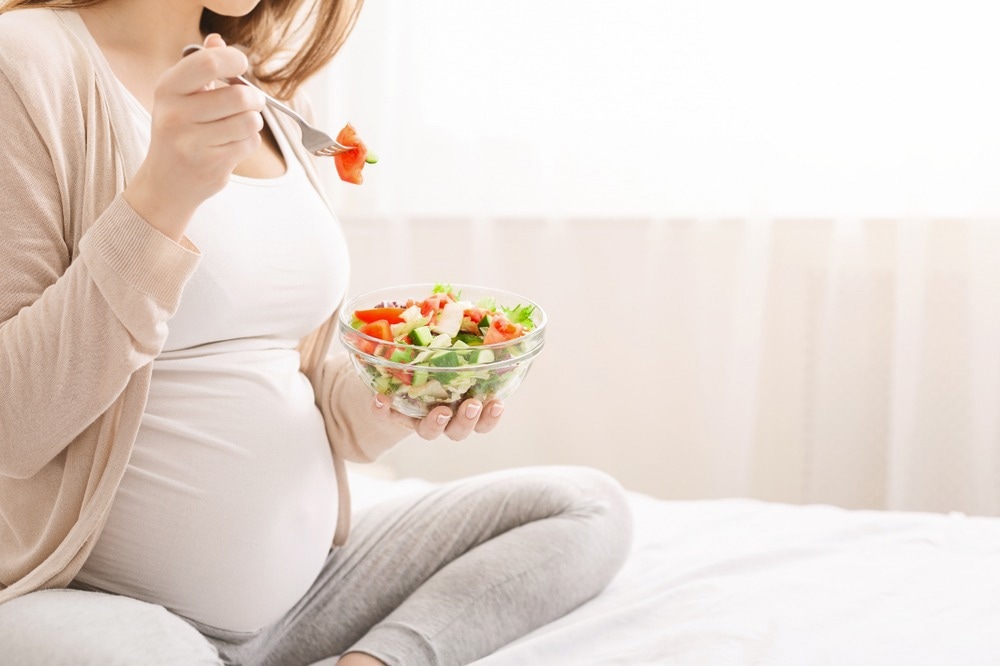A brand new examine revealed within the journal Reproductive Toxicology critiques present proof supporting the function of vitamin as a modifiable danger issue for feminine infertility and poor in vitro fertilization (IVF) outcomes.
Examine: Diet, feminine fertility and in vitro fertilization outcomes. Picture Credit score: Prostock-studio / Shutterstock.com
Introduction
Infertility is outlined as the lack to conceive and turn out to be clinically pregnant after 12 months of unprotected intercourse. Present estimates point out that 15-20% of {couples} expertise infertility globally.
Rising infertility charges have led researchers to turn out to be more and more inquisitive about figuring out modifiable way of life and environmental components that will have an effect on reproductive well being. The potential impression of sure dietary patterns, reminiscent of Mediterranean and Western diets, and particular meals on infertility have additionally been extensively studied.
Within the present examine, researchers assessment the complicated relationship between vitamin and fertility, with a selected deal with carbohydrates, proteins, and fatty acids.
Carbohydrates
Carbohydrates, that are the first vitality supply in people, regulate the glucose metabolic pathway and insulin-mediated glucose management. Carbohydrates vary from monosaccharides or easy sugars to complicated molecules like plant cell wall polysaccharides and sure oligosaccharides. The glycemic index (GI) and glycemic load (GL) are values that mirror how carbohydrates have an effect on blood sugar ranges.
GL might be decreased by consuming extra complicated indigestible carbohydrates, reminiscent of these present in soluble dietary fiber or entire grain meals merchandise. The next whole-grain consumption has been related to greater being pregnant and reside start charges. Likewise, consuming extra greens has been proven to enhance embryo high quality following intracytoplasmic sperm injection (ICSI).
Carbohydrate consumption and its breakdown additionally seem to control ovarian operate. In reality, the danger of ovulatory infertility was about 80% greater amongst ladies who consumed extra carbohydrates as in comparison with these with the bottom quintile of carbohydrate consumption within the Nurses’ Well being Examine II (NHS II) of 2009.
A food plan that with lower than 45% of the entire vitality consumption from carbohydrates has been proven to enhance polycystic ovarian syndrome (PCOS) signs by growing the degrees of follicle-stimulating hormone (FSH) and intercourse hormone binding globulin (SHBG), all of the whereas reducing testosterone and insulin ranges. That is correlated with decreased weight in obese or overweight PCOS sufferers.
With a hypocaloric food plan, during which half of the every day energy are from carbohydrates, a larger variety of ova had been retrieved, and better scientific being pregnant and reside start charges had been recorded in infertile and overweight infertile ladies throughout IVF. Nonetheless, the consumption of sugary soda was additionally weakly linked to a decrease variety of ova retrieved and embryos obtained by ovarian stimulation cycles, along with a decreased reside start fee.
Proteins
A wholesome grownup is anticipated to eat 0.8 g/kg protein for every kilogram (kg) of physique mass. Animal protein consumption has been positively linked to ovulatory issues in comparison with plant proteins. In reality, 5% of vitality consumption offered by vegetable proteins fairly than animal proteins has been proven to scale back the danger of ovulatory issues by greater than 50%.
Dairy and soy consumption has been correlated with higher outcomes throughout IVF. It’s because soy incorporates phytoestrogens, a category of isoflavones with a construction resembling that of estrogen that exhibit weak estrogenic exercise by estrogen receptor binding.
There may be honest proof that animal-based proteins have an effect on feminine fertility versus these plant-based, suggesting that proteins supply could signify an necessary determinant of reproductive success.”
Fat
Omega-3 polyunsaturated fatty acid (ω-3 PUFAs) and omega-6 (ω-6) PUFAs are present in several types of meals merchandise. To this finish, ω-3 PUFAs are sometimes present in fish like salmon, mackerel, sardines, and tuna, in addition to nuts, seeds, and plant oils. Comparatively, ω-6 PUFAs, which can be present in nuts, seeds, and oils, are sometimes current in poultry meat, fish, and eggs.
No definitive proof has decided the impression of those fat on IVF outcomes; nevertheless, higher being pregnant odds seem like correlated with elevated ω-3 PUFA consumption.
However, sure meals like fish could enhance the extent of publicity to persistent natural contaminants like methylmercury and dioxins. Equally, vegetable and fruit ingestion could enhance the danger of pesticide publicity.
The chance related to the presence of those toxicologically lively compounds may depend upon a number of components, in addition to the quantity of meals consumed, the sufferers’ ethnicity and hormonal standing.”
Implications
Evidences on the function of vitamin in fertility/infertility are quickly evolving, however at the moment, the out there information are inadequate to completely help training clinicians in giving dietary suggestion to infertile {couples}.”
Extra analysis is required to look at how vitamin is said to elevated publicity to endocrine-disrupting chemical substances and at what ranges to higher perceive its impression on reproductive operate.

